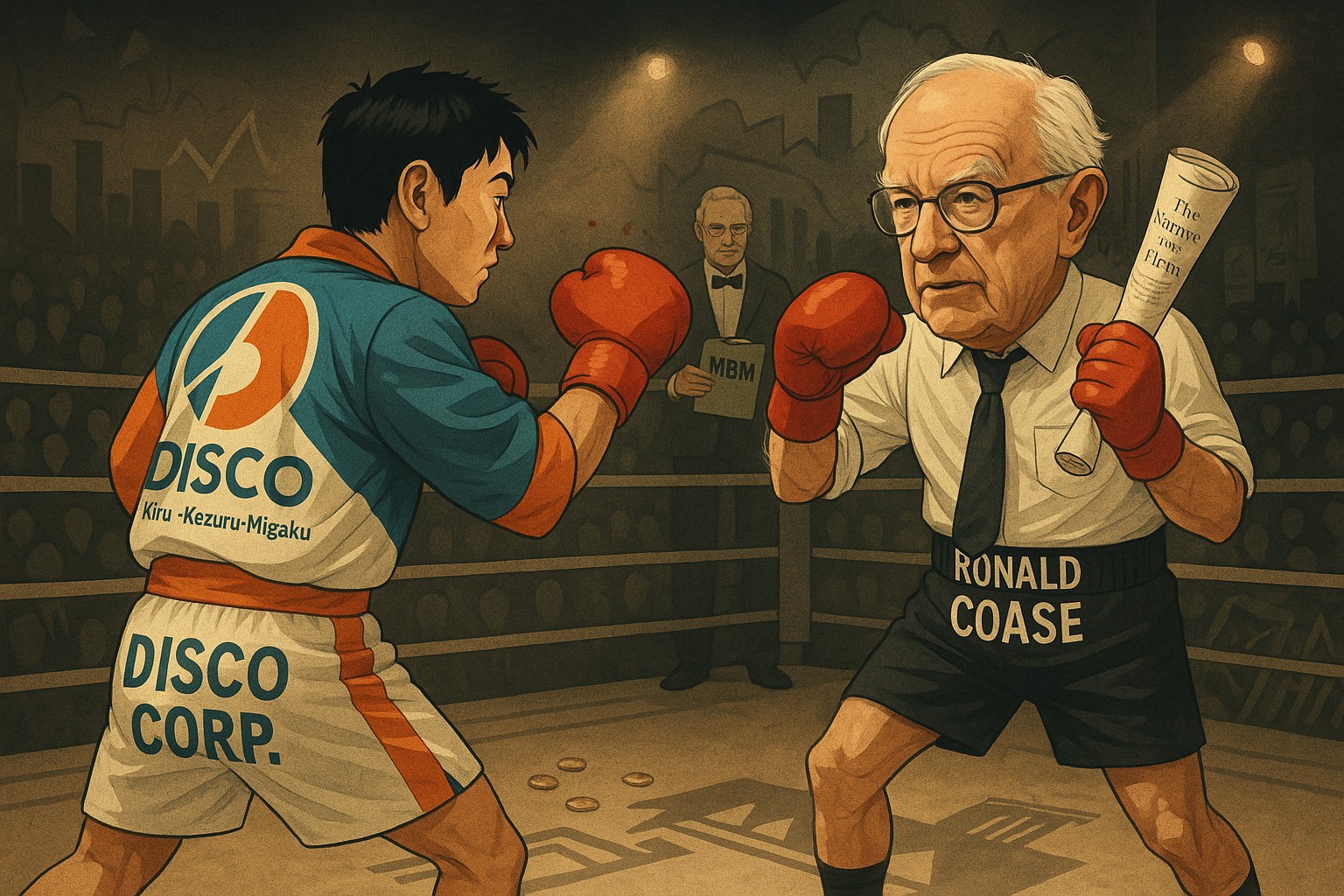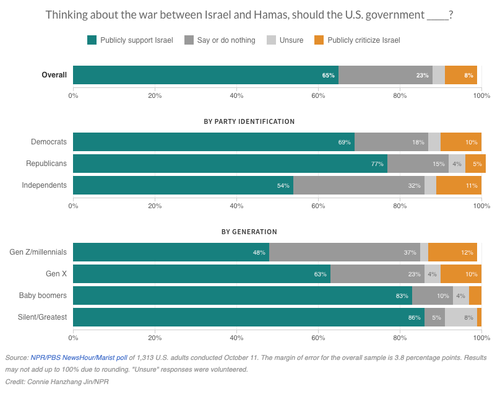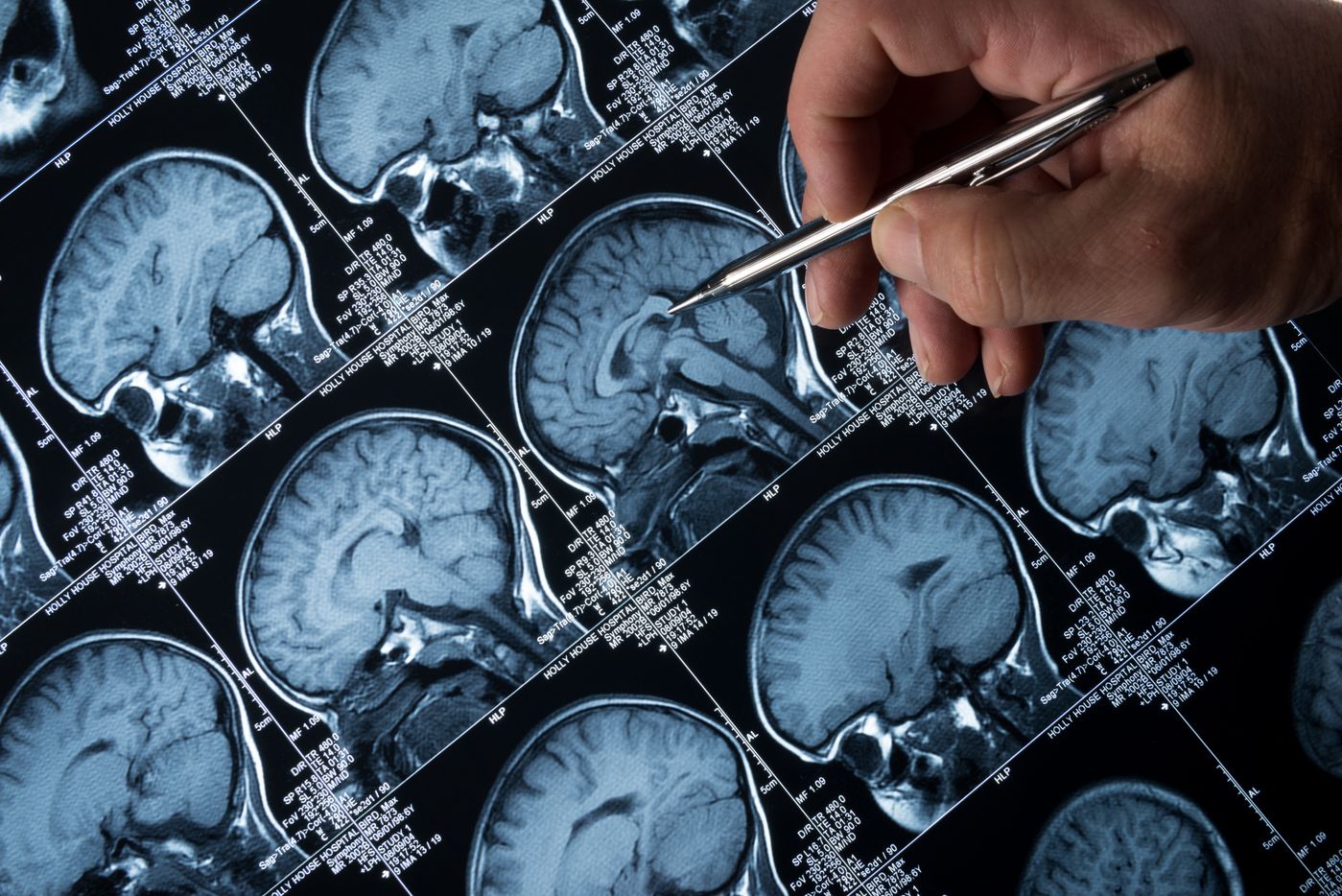Russ Roberts: We’re going to start with how your book opens, which is contrasting civility with politeness. Most people use them interchangeably, but you, throughout the book, are eager and I think correct to point out that they are not the same thing. So: what’s the difference, and why does it matter?
Alexandra Hudson: So, I was raised in a home that was very sensitive and mindful of social norms. My mother–she’s called “Judi the Manners Lady”–and I learned through writing this book that my mother is one of four women named Judith who are internationally renowned experts named Judi. One of the most famous is probably Judith Martin, the Washington Post columnist, but there are two more plus my mother.
And so, being raised in this home mindful of social norms, I’m constitutionally allergic to authority. I just don’t like being told what to do. I [?don’t?] like reasons for why I’m asked to do things.
And so, I always remember questioning social norms growing up. And, yet my mother’s example of hospitality, of graciousness, of just other-orientedness plus her formal instruction and the ways and means of manners and politeness. She kind of promised that these would lead to success in life and school; and she was generally right. And, that was the case until I found myself at the U.S. Department of Education. I had taken a role there; and I was confronted by two extremes that I was not prepared for.
On one hand, I saw the people with sharp elbows and who were willing to step on anyone to get ahead and gain proximity to power. And, on the other hand, I saw people who I first thought were my people. These are the people that knew the ways and means of politesse, and they were suave and well-kempt. But I learned that these were the people that would smile and flatter me one second and then stab me in the back and others in the back the moment that we no longer serve their purposes.
And that really threw me. At least with the overtly aggressive people, I knew where I stood with them and I knew to avoid them if at all possible.
But, this disconnect between inner and outer manners and morals really threw me, because one thing my mother had said growing up was that manners were an outward extension of our inward character–which is why she cared about them, why she’s called the Manners Lady, why she has dedicated her life to moral and character formation. And, yet I was confronted with this disconnect: people who were seemed good and nice but were ruthless and cruel.
And, it was after I left government that helped clarify for me that there is this essential distinction between civility and politeness. That: politeness is manners. It’s etiquette. It’s behavior. It’s the external trappings of politesse. Where, civility is something richer and deeper. It’s a disposition of the heart that sees others as our moral equals and worthy of a bare minimum of respect by virtue of our human dignity and shared personhood and equal moral worth as human beings.
And that, sometimes, actually respecting someone requires being impolite–requires breaking the rules of etiquette and propriety and politesse in order to respect them. Like, telling someone a hard truth or engaging in robust debate instead of polishing over difference, or averting–sweeping a difficult conversation under the rug. Actually, the respectful thing to do is to have that conversation.
And, today we have two groups of people: one that longs for this golden era of gentility and chivalry and politeness. You know, like, ‘Why can’t we just get along like in the good old days?’ And, then we have this other group and contingent that thinks that civility and politeness is the root of all injustice in the world. It’s a tool of patriarchy, a tool of people in positions of power to silence the powerless and keep them powerless.
So, we hear these two competing factions; and yet both make a crucial mistake–is that they conflate these two ideas of civility and politeness when they’re very different.
And, it’s important to make this distinction that we know as a society: what is the mode of conduct that we want more of and what do we want less of?
Russ Roberts: And your mom was very good at, I suspect, inculcating politeness in you–because she was very focused on manners. Do you attribute your civility to her as well? I don’t know you very well. I think we’ve met in person once or twice very briefly. You strike me definitely as a polite person, and your book suggests you are also a civil one, or at least one who strives to be civil. Do you think that came mostly from your mom also, or do you think it came from elsewhere?
Alexandra Hudson: That’s a great question, Russ, because politeness on its own is not inherently bad. Its behavior, right? But, it’s a tool. It’s a technique that can be used for good or for ill. It can be used to mask–it’s sort of a Machiavellian spirit that’s wanting to use behavior, polished technique, to manipulate others; or it can be a capstone on the disposition of civility that sees people as worthy of respect and it can facilitate difficult conversations.
To your point, I think my mom–she embodied both really well. And she definitely embodied the other-orientedness, the sacrifice for others, the love of others, the hospitality that is such the mark of a civil spirit. But she’s nice and she’s kind. And people are often really caught off guard by her, and my grandmother before her, because they’re, like, ‘These people are too nice. Like, what’s going on?’
But, she really just loves people; and that’s why she’s dedicated her life to what Dale Carnegie, the author of How to Win Friends and Influence People, called the fine art of getting along. She just has this zeal for people in the human condition and wants to connect, wants to bring people together. And, she’s done that in such a beautiful way with her life. And, I’m grateful to her example.
Russ Roberts: So, of course, you–as all human beings–are a product of nature and nurture. You grew up in the home of your parents. You saw examples of the kind of thing you’re talking about. And you are their genetic offspring, I think: I’m assuming you’re not adopted. But do you think that the character traits that you urge in this book, which are wonderful ideals: respecting other people, treating them as your equal, giving them the benefit of the doubt. I think for many people these come naturally, these traits, and they might aspire to do better at them, but they’re going to struggle. How much of it do you think is just one’s nature? That, to put it bluntly, there are good-hearted people or kind people, and there are people who are not so kind, they’re more self-centered. They’re more–a trait you talk about a lot–that there’s a lot more self-love in their heart than there is a love for the rest of humanity. How much of that do you think is sort of ingrained?
Alexandra Hudson: It’s a great question. I’d say my book is very much at the intersection of nature and culture. On one hand the vision of the human condition that I put forth in the book, I draw from my favorite philosopher and thinker, Blaise Pascal, the 17th century French polymath and inventor and scientist. In his Pensées, he says the human condition is defined by “the greatness and wretchedness of man.” That we have both aspects with greatness and wretchedness within us, every single one. And, I recount that famous story of the Cherokee grandfather telling his grandson–you know, the grandfather: ‘Which wolf will you feed?’ Right? ‘Is it the wolf that is malicious and unkind in your soul, or is it the wolf that is gracious and generous?’ And, that story, there are many variations of it.
And, because it, like, speaks to something we all intuitively know to be true: that–again, I love Blaise Pascal’s approximation of the human condition, “the greatness and the wretchedness of man.” Solzhenitsyn, his famous line, ‘The line between good and evil goes through every human heart.’ I adopt that in my book. The line between civilization and barbarism goes through every human heart. That’s the first chapter of my book–that, it’s easy to look to civilization’s past and present and look to things like technological advancement, beautiful skyscrapers, sophistication of language, technological achievements.
But, Samuel Johnson has a great line, that the true test of a civilization is how it treats the most vulnerable and the poor; and when society–that the true test of civilization is whether it has this milk of human goodness, this basic respect for the equality and dignity of all persons and doesn’t put out these racial hierarchies of in-group/out-group, us-versus-them that it’s so easy to do in civilizations across time and place.
But, to your question about the intersection of nature and culture, I start with that vision of the human condition–the greatness and wretchedness of man–and layered on top of that is my theory of human nature. Which isn’t original to me: this goes back to Aristotle and many thoughtful people before me–that we’re profoundly social as a species. We long for relationship. We long for community with others. We become fully human in relationship. We know that. And, that’s why as long as we’ve been around, we’ve come together as a species.
And yet, we’re also defined morally and biologically by self-love. We are geared to meet our own needs before others. And those two facets of our nature, our intention, and that is why the joint project of human community, of civilization, of friendship will always be fragile. It is never a foregone conclusion because it’s in our nature. There’s competing forces in our nature.
Another great line from Pascal is: ‘Man is a Chimera.’ And, a Chimera is this mythological creature with this amalgamation like the head of a horse and the body of a cow and different things like that. Like, we’re just this conundrum of a species internally; like, we’re at cross-purposes with ourselves constantly, and we do things that self-sabotage our own purposes. So, it takes effort.
To your point about nature versus culture, that’s our nature. The human condition, our human nature is one thing, but through the will, through effort, through habit formation, through education in the home and in schools, that’s the culture. That’s the cultivation that each soul, each person can and must undergo so that we can bring forth that which is best in us and in others. That’s the promise of relationship. That’s the promise to human community: that, together we’re able to do more than we would independently.
Russ Roberts: And of course, we’ve talked a lot about–in this program–about Adam Smith’s vision of this: that we are naturally self-interested. In fact, I view his masterpiece, The Theory of Moral Sentiments, to be why we–asking the question–why we ever do anything for other people given that our overwhelming natural impulse is self-love–not greed, not selfishness, but self-love, self-interest. And, I think denying that is a mistake. I think Smith is absolutely 100% correct, and that comes from a lifetime of observation as well as my own armchair, right? I think we all can understand this temptation we have to self-advancement, self-love.
And, I agree with you, that–the way I think of it is: growing up is about recognizing the power of curbing that self-love and taking account of other people; and to build that habit, because it does not come naturally. That habit has to be inculcated either through religion, culture, family, or self-study. There are many ways to do it. They’re all hard, and they work in varying degrees. Or to read books like yours, which, of course your book is an attempt to bring more of it into the world.
To give you one more quote, by the way, the one I love is Faulkner’s Nobel Prize speech. When he got the Nobel Prize for Literature, he said that, I think either literature or art ‘is about the human heart in conflict with itself.’ I don’t know if Solzhenitsyn read Faulkner, but they’re not unrelated.
Russ Roberts: Let’s talk about trustworthiness and the role that trust plays in civil society and civilization and what is lost when it can’t be relied on.
Alexandra Hudson: It’s a great point. I was just talking to a friend of mine, Stephanie Slate[?], about this. I was listening to a lecture series on the Hammurabi Code. So, this early example in human history of positive law, right? So, the law that is enacted by a sovereign–some sort of leader in society–to promote peace and prosperity. And, I asked Stephanie, I was, like, ‘What do you think happened in ancient Babylon where Hammurabi, the ruler of this time, decided: Okay, now I’m going to write down on tablets these 271 precepts about what justice is going to be?’
I was, like, I asked her, ‘Is it the case that norms that had previously bound and restrained people’s interactions and governed the horizontal relationship between citizens–had those broken down for some reason and therefore they could no longer be relied on? And, so, Hammurabi said: Okay, we have to now have laws with pretty draconian punishments?’ This kind of, sort of lex talionis, like eye-for-an-eye ethos in the justice doled out by Hammurabi’s Code. You steal, you get your hand cut off–like that kind of thing.
And she said, ‘Maybe that’s true,’ or that the norms had degraded such that Hammurabi decided it was time to have positive law in place to keep society intact. And she said, ‘Or, maybe it was the case that they were just so widely accepted and followed that they thought: ‘Why not? Why not just codify these and have this be declaratively and affirmatively the law of the land?’ Just so there’s no question about it. Maybe it was preemptive. [More to come, 16:24]
















